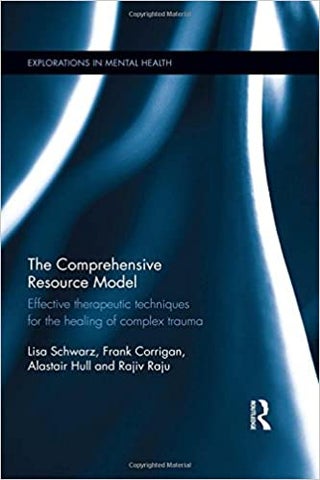-
About
- Trauma Certification
-
Upcoming Events
>
- The Ultimate Architect- Implementing God’s Teachings to Heal Life’s Hurts and Hearts
- Trauma & Attachment Conference
- 2023 Lake Louise Immersive Trauma and Yoga Wellness Training Retreat
- Healing Trauma - Free Immersive Master Class
- UK Trauma & Attachment Certification Series
- Parenting Through a Trauma-Informed Lens
- Clinical Services Partners
- Clinical Consultation
- Professional Resources
- Contact
-
Trauma & Attachment Specialist Certification
- Trauma Certification
-
ITATM
>
- Certified Trauma Integration Practitioner (CTIP) Non-Clinical
- Certified Trauma Integration Clinician (CTIC) Clinical Stream
- Certified Trauma Providers >
- Certified Trauma Integration Facilitator (CTIF)
- Certified Trauma Integration Mentor (CTIM)
- Certified Trauma Informed Organization (CTIO)
- About Our Trainers
- Consultations
- Live Online Trainings
-
Recommended Resources
>
- BookList
- Essential Oils / Aromatherapy / Diffuser Jewellery
- Mindfulness Training with MUSE
- Emotional Regulation Links and Handouts
- Self-Compassion Art Journalling Program
- Attachment Informed Parenting Program
- Binaural Beats
- Training the Heart & Body
- Cool Calm Connected Parent Child Program
- Mindfulness and Meditation
- Racism Pandemic Resources
- Sensory Resources
- COVID Resources
- Blogs
- What People Are Saying About Our Certification Trainings
-
Custom Trainings
- Integrative Trauma & Attachment Treatment Model
- ITATM Customized Through an Indigenous Context
- ITATM Training Delivered in Arabic
- Trauma-Informed Primary Care
- LAMP Neurobiology of Trauma Training
- Attachment Informed Parenting - Training to implement manualized program
- Expressive Arts and Trauma Recovery
- Trauma Informed Youth Justice
- Working With Complex Aspects of Trauma
- Understanding Trauma’s Impact on Learning and Schools - Collaborating between Caregivers and Schools to Create an Effective Plan
- Trauma-Informed Child Welfare
- Sampling of Past Presentations >
- Distance Learning
2015 Trauma and Attachment Conference
Attachment, Regulation, and Healing
Visit our conference website for full details: http://www.attachmentandtraumaconference.com
Join lead trainers Joseph Spinazzola, Ph.D. and Elizabeth Warner, Psy.D. from the Trauma Centre at Justice Resource Institute www.traumacenter.org founded by Dr. Bessel van der Kolk to learn about their leading edge approaches to healing trauma. This is a 5 Day Conference event. Daily, Partial, and Full Conference Rates available.
Day 1: Developmental & Neurobiological Impact of Child Maltreatment & Abuse
This training session will provide an overview of the developmental impact of chronic childhood trauma, including definition and prevalence of child trauma; understanding of long-term consequences; an introduction to the complex trauma framework; and an overview of key process issues including developmental stage, the attachment system, functional domains of impairment, and alternative adaptations. The workshop will also discuss the effects of trauma on the brain, on the immune system, on health care utilization, and on attentional issues. Neuroanatomical and physiological impact will be linked to behavioral presentation.
Days 2 & 3: Fostering Resilience in Trauma-Impacted Youth and Families: The Attachment, Self-Regulation, and Competency (ARC) Framework. Two-Day ARC Model Training
As many as one in four youth will experience a potentially traumatic exposure, and many of these will be multiple or prolonged. The impact of these stressors is far-reaching, and often repeats across generations as yesterday’s impacted children become tomorrow’s parents and caregivers. Establishing effective practice for this population is a priority, but is challenging, given their diverse histories, their varied presentations, the multifaceted contextual, cultural, and developmental influences which shape them, and the wide range of systems within which they seek care.
The Attachment, Self-Regulation, and Competency (ARC) (Kinnibrugh & Blaustein, 2005; Blaustein & Kinniburgh, 2010) framework is a core-components treatment model, developed to provide a guiding framework for thoughtful clinical intervention with complexly traumatized youth and their caregiving systems. Drawing from the fields of trauma, attachment, and child development, the framework recognizes the importance of working with the child-in-context, of acknowledging the role of historical experiences and adaptive responses in current presentation, and of intervening with the surrounding environment – whether primary caregivers or treatment system – to support and facilitate the child’s healthy growth and development. Rather than identify step-by-step intervention strategies, the framework identifies 10 key “building blocks”, or intervention targets, key skills/ goals within each domain, developmental and cultural considerations, and potential applications across settings.
What is ARC? ARC is a framework for intervention with youth and families who have experienced multiple and/or prolonged traumatic stress. ARC identifies three core domains that are frequently impacted among traumatized youth, and which are relevant to future resiliency. ARC provides a theoretical framework, core principles of intervention, and a guiding structure for providers working with these children and their caregivers, while recognizing that a one-size-model does not fit all. ARC is designed for youth from early childhood to adolescence and their caregivers or caregiving systems.
In this workshop, we will examine the theoretical foundations underpinning this framework; build skills and knowledge in each identified treatment domain; and discuss case applications and considerations across contexts.A two-day training will be provided. This training will focus on core components of the Attachment, Self-Regulation, and Competency (ARC) treatment framework. Workshop will include didactic overview, case discussion, and experiential exercises.
Objectives:
- 1) Participants will be able to describe three priority domains of intervention for youth and families exposed to complex trauma.
- 2) Participants will be able to identify 10 core targets of intervention with trauma-impacted youth.
- 3) Participants will be able to describe at least one intervention technique within each of the primary identified treatment domains.
For further information about the ARC model visit http://www.traumacenter.org/research/ascot.php
Days 4 & 5: SMART Workshop: Sensory Motor Arousal Regulation Treatment - A Bottom-Up Approach to Treatment of Complex Trauma
SMART (Sensory Motor Arousal Regulation Treatment) was initiated to explore and expand the repertoire of regulating experiences for children and their caregivers with the aim of nurturing healing and growth. For children with complex trauma in their background, regulation of emotional, behavioural and interpersonal life is exceedingly difficult. Thus, they find it difficult to live peacefully with their families, to make friends, and to learn in school. By adding a new array of strategies to the standard mental health therapy repertoire, we can better help children become more organized, playful, and expressive in their everyday lives. Caregivers can learn these strategies in the context of the therapy, while they work in tandem with the therapist.
Our mental health team draws on expertise from the worlds of trauma-focused psychotherapy, sensorimotor psychotherapy, sensory integration,
play therapy, attachment and family therapy, developmental psychology and human development. In the room developed especially for this purpose, children can playfully use big pillows, weighted blankets, balance beams, art materials and other equipment that call for full engagement of the whole body and mind.
This therapy approach for treatment of trauma is designed to be helpful to children and caregivers alike. Caregivers often have their own needs to
learn how to be present and calm as parents because of personal history or current stressors. Often strategies learned with their children are useful to adults. Either through participation in the child's therapy, or through private parent guidance work, caregivers can benefit from this approach.
A two-day workshop involving intensive training in key concepts and intervention components from the Sensory Motor Arousal Regulation Treatment (SMART) framework will be provided. Workshop will be discussion-oriented and highly interactive
Objectives
- Participants will be able to describe a model for identifying and understanding difficulties in arousal regulation, a psychoneurobiological legacy of trauma, in children.
- Participants will demonstrate early proficiency with an easily accessible framework and practical tools that help regulate the arousal of children such that the child is better able to socially engage, regulate and integrate affect, and participate in / access more traditional mental health therapies.
- Participants will be able to demonstrate 5 specific skills that equip the therapist to better use the self as a tool of co-regulation for the child, an essential first step to helping traumatized children develop effective self regulating capacity.
About the Presenters:
Joseph Spinazzola, Ph.D, Dr. Spinazzola is the Executive Director of the Trauma Center and Vice President of Behavioral Health and Trauma Services at Justice Resource Institute. Dr. Spinazzola is a member of The Forensic Panel and holds an appointment at Boston University School of Medicine. In his 16th year with the Trauma Center, Dr. Spinazzola remains actively involved with provision of direct services to individuals and providers, serving as a clinician, clinical supervisor, senior trainer, and as Associate Director of our Research Department. Dr. Spinazzola is Director of the Complex Trauma Treatment Network, a national initiative to transform large regional and statewide systems of care, operated through our Center's Category II National Child Traumatic Stress Network site award. Additionally, he is Director of a National Action Partnership on Polyvictimization sponsored by the federal Office for Victims of Crime. Dr. Spinazzola specializes in the assessment, diagnosis, prevention and treatment of complex trauma in children and adults, and is the author of a number of publications in this area as well as on the topic of youth violence prevention. Dr. Spinazzola holds particular interest in dissociative coping adaptations in survivors of chronic maltreatment and neglect and in the role of transformative action in the recovery process.
Staff Clinician, Senior Administrative Team, Senior Consultation Practice, Clinical Supervisor, Training Faculty, NCTSI, VOCA Services, Project Reach, Research, School-Based Services, GLBTQ services
Specialized Services Provided at the Trauma Center: EMDR (Level II), DBT, CBT, Treatment of Dissociation, ARC, Psychological/Neuropsychological Assessment, Trauma Evaluation
Elizabeth Warner, Psy.D. Dr. Warner has had a psychotherapy practice with adults, adolescents and children in Brookline for the past 25 years. Her specialization is in the area of child and adolescent development, family therapy, and the impact on adults of parenting. Special interests include adoption and adoptive families, the special nature and implications of that attachment, and the development of effective treatments for complex trauma in children and adolescents. She spent 15 years working with severely disordered children including traumatized children and their parents, using innovative methodologies and the use of videotape at the Language & Cognitive Development Center. In addition, she has worked in psychiatric inpatient and outpatient settings at Boston University Medical Center, schools, mental health clinics and residential treatment, providing therapy, teaching and consultation.
Below are a sampling of some of the journal articles by Trauma Center and JRI Faculty Featured in 2013 Special Issue of the Journal of Family Violence. Focusing on the Treatment of Child & Adolescent Complex Trauma in Residential Care Settings:
- Residential Services for Children and Adolescents Impacted by Family Violence and Trauma. Pond & Spinazzola. Journal of Family Violence, 28 (7), 635-638.
- Traumatized Youth in Residential Treatment Settings: Prevalence, Clinical Presentation, Treatment and Policy Implications. Zelechoski, Sharma, Beserra, Miguel, DeMarco & Spinazzola. Journal of Family Violence, 28 (7), 639-652.
- Development and Implementation of Trauma-Informed Programming in Youth Residential Treatment Centres Using the ARC Framework. Hodgdon, Kinniburgh, Gabowitz, Blaustein & Spinazzola. Journal of Family Violence, 28 (7), 679-692.
- Can the Body Change the Score? Application of Sensory Modulation Principles in the Treatment of Traumatized Adolescents in Residential Settings. Warner, Koomar, Lary & Cook. Journal of Family Violence, 28 (7), 729-738.
- Systemic Self-Regulation: A Framework for Trauma-Informed Services in Residential Juvenile Justice Programs. Ford & Blaustein. Journal of Family Violence, 28 (7), 665-677.
- Play to the Whistle: A Pilot Investigation of a Trauma-Informed Sports-Based Intervention for Girls in Residential Treatment. D'Andrea, Bergholz, Fortunato & Spinazzola. Journal of Family Violence, 28 (7), 739-749.
- Real Life Heroes: Application of a Developmental, Resilience-Centred Treatment Model for Children in Residential Treatment. Kagan & Spinazzola. Journal of Family Violence, 28 (7), 705-715.
To view publications, or a full list of recent publications visit http://www.traumacenter.org/products/publications.php
Registration form attached here please mail completed registration form to ATTCH, PO Box 10, St. Davids, ON L0S 1P0 or fax to (905) 262-0707. Alternatively electronic registration is available below.
- Full 5-Day conference $500.00 + taxes
- 1 Day Developmental & Neurobiological Impact of Child Maltreatment & Abuse $200.00 + taxes
- 2 Day Attachment, Self-Regulation, and Competency (ARC) Training $320.00 + taxes
- 2 Day Sensory Motor Arousal Regulation Therapy (SMART) Training $320.00 + taxes
Contuing Education credits available as required through the following accrediting bodies:
Canadian Counselling and Psychotherapy Assocaition - The CEC application for Trauma Treatment the van der Kolk Way: Attachment, Regulation & Healing - 37309 has been evaluated: 27.5 CEC hour(s) was/were given for this event.
Accommodations:
We have secured reduced rate accomodations at the Four Points Sheraton which is approximately 5km away from the conference venue. A personalized Web site for 2015 Trauma And Attachment at https://www.starwoodmeeting.com/Book/2015Attachment
Full 5-Day Conference - 2018 Trauma and Attachment Conference - Foundational Stream
Day 1 & 2 ~ March 19 & 20 Foundational Stream:
Day 1 Understanding the Foundations of Trauma and Attachment
Day 2 Phase-Based Clinical Applications to Promote Healing and Integration of Trauma and Attachment Dysregulation – with presenter: Lori Gill
Day 1 & 2 ~ March 19 & 20 Advanced Stream (Ideal for those who have completed the above foundational training):
Day 1 Details to follow soon
Day 2 AM Details to follow soon
Day 2 PM Details to follow soon
Day 3 ~ March 21 Details to follow soon
Day 4 ~ March 22 Carmen Richardson MSW, RSW, RCAT, REAT, Prairie Institute of Expressive Arts Therapy, Author of Expressive Arts Therapy for Traumatized Children and Adolescents: A Four-Phase Model
Day 5 ~ March 23 Lisa Schwarz, M.Ed,Creator of Comprehensive Resource Model
More details to follow soon!
Early Bird Rate available until February 15, 2018
*Price is inclusive of morning and afternoon refreshment breaks and lunch on site
*Note an additional fee applies to online purchases to offset associated fees ($23.89 for full conference). There is no fee to complete an etransfer through online banking or to pay by cheque.
Day 3 Only - Trauma Processing Experiential
Day 3 only: Trauma Processing Experiential with Lori Gill
Early registration: Early registration online rate: $260.00 + HST (taxes included in price charged). After March 01, 2019 online purchase rate $310 + HST
*Note an additional fee applies to online purchases to offset associated fees. There is no fee to complete an transfer through online banking.
Day 4 only, March 22, 2018 Carmen Richardson Expressive Arts Therapy for Traumatized Children and Adolescents: A Four-Phase Model
Early Bird Rate available until February 15, 2018
*Note an additional fee applies to online purchases to offset associated fees. There is no fee to complete an transfer through online banking.
Lisa Schwarz Introduction to the Comprehensive Resource Model (CRM)
Lisa Schwarz, M.Ed,Creator of Comprehensive Resource Model.
Course Description: Comprehensive Resource Model
Healing from the impact of traumatic experiences requires that there is sufficient brain and body-based safety in order for survival terror and all painful/intolerable affects to be stepped into, felt fully, remembered/re-membered, and re-oriented toward so that transformation can occur. Full orientation toward profound grief, rage, shame, disgust, and terror allows for liberation of the truths of one’s life and facilitates integration of all aspects of all experience into the whole of one’s being, creating the ultimate connection to self as mind-body-spirit. The Comprehensive Resource Model (CRM) recognizes that the ability to stay fully present moment to moment during trauma processing is imperative to deep healing through attachment re-wiring. This is accomplished through the concurrent development of dormant healthy attachment neurobiology and thorough attachment trauma re-processing. This presentation is an introduction to CRM, a modality which clears attachment trauma/disruptions through the scaffolded development of internally-sourced neurobiological and neurochemical attachment resources. These attachment resources are the framework within which attachment trauma is healed; allowing for simultaneous re-processing, re-wiring and re-consolidation of attachment wounds from gestation to the present.
This workshop provides: the theoretical case conceptualization that is the foundation for clinical practice in the healing of attachment issues; an overview of the development and nested use of clinical resourcing interventions, and some basic resourcing skills that can be used immediately to aid in affective/somatic regulation during and between sessions.
|
© ATTACHMENT AND TRAUMA TREATMENT CENTRE FOR HEALING (ATTCH) INC.
ALL RIGHTS RESERVED. Website: www.attch.org Email: [email protected] Phone (289) 968-9619 Fax (905) 684-6217 |
-
About
- Trauma Certification
-
Upcoming Events
>
- The Ultimate Architect- Implementing God’s Teachings to Heal Life’s Hurts and Hearts
- Trauma & Attachment Conference
- 2023 Lake Louise Immersive Trauma and Yoga Wellness Training Retreat
- Healing Trauma - Free Immersive Master Class
- UK Trauma & Attachment Certification Series
- Parenting Through a Trauma-Informed Lens
- Clinical Services Partners
- Clinical Consultation
- Professional Resources
- Contact
-
Trauma & Attachment Specialist Certification
- Trauma Certification
-
ITATM
>
- Certified Trauma Integration Practitioner (CTIP) Non-Clinical
- Certified Trauma Integration Clinician (CTIC) Clinical Stream
- Certified Trauma Providers >
- Certified Trauma Integration Facilitator (CTIF)
- Certified Trauma Integration Mentor (CTIM)
- Certified Trauma Informed Organization (CTIO)
- About Our Trainers
- Consultations
- Live Online Trainings
-
Recommended Resources
>
- BookList
- Essential Oils / Aromatherapy / Diffuser Jewellery
- Mindfulness Training with MUSE
- Emotional Regulation Links and Handouts
- Self-Compassion Art Journalling Program
- Attachment Informed Parenting Program
- Binaural Beats
- Training the Heart & Body
- Cool Calm Connected Parent Child Program
- Mindfulness and Meditation
- Racism Pandemic Resources
- Sensory Resources
- COVID Resources
- Blogs
- What People Are Saying About Our Certification Trainings
-
Custom Trainings
- Integrative Trauma & Attachment Treatment Model
- ITATM Customized Through an Indigenous Context
- ITATM Training Delivered in Arabic
- Trauma-Informed Primary Care
- LAMP Neurobiology of Trauma Training
- Attachment Informed Parenting - Training to implement manualized program
- Expressive Arts and Trauma Recovery
- Trauma Informed Youth Justice
- Working With Complex Aspects of Trauma
- Understanding Trauma’s Impact on Learning and Schools - Collaborating between Caregivers and Schools to Create an Effective Plan
- Trauma-Informed Child Welfare
- Sampling of Past Presentations >
- Distance Learning



